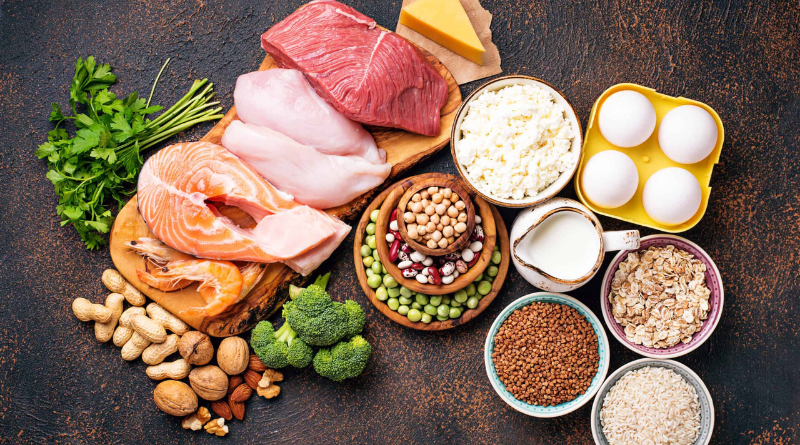Protein is a crucial part of a healthy diet because it helps the body function at its best. It plays an important role in building and repairing tissues, and it is used to create enzymes, hormones, and other chemicals that support bodily functions. Protein is also vital for healthy hair, nails, muscles, and bones. Since the body doesn’t store protein, it is essential to get enough daily through food. Eating a variety of protein-rich foods ensures you also get other important vitamins and nutrients that are needed for overall health and well-being. Incorporating protein into each meal helps maintain a balanced diet and supports your body’s growth and repair processes.
Best Supercharged Protein Foods
1. Eggs

Eggs are a great source of protein and are rich in essential vitamins and minerals. Each egg provides high-quality amino acids that the body uses to create proteins. Eggs are especially beneficial for muscle building. They are also rich in antioxidants that protect the eyes from damage, preventing conditions like macular degeneration and cataracts. In addition to protein, eggs contain vitamin B12, B2, vitamin A, calcium, selenium, and iron. These nutrients help keep the body strong, and eggs are a versatile food that can be included in various dishes. Whether boiled, scrambled, or poached, eggs are an easy and nutritious choice for a healthy diet.
Also Read- 8 Most Favorite Mexican-Inspired Breakfast Recipes
2. Milk

Milk is a powerful source of both protein and calcium, both essential for maintaining strong bones and muscles. The protein in milk supports tissue repair and growth, while calcium strengthens bones and teeth. Milk also provides vitamin A, which supports immune function, and vitamin D, which helps the body absorb calcium. Along with these nutrients, milk is rich in phosphorus, vitamin B, and potassium, which promote overall health. For energy, the carbohydrates in milk fuel the body’s activity. Different types of milk, such as whole, skim, or two percent, offer a range of options to fit various dietary preferences and nutritional needs.
3. Cottage Cheese
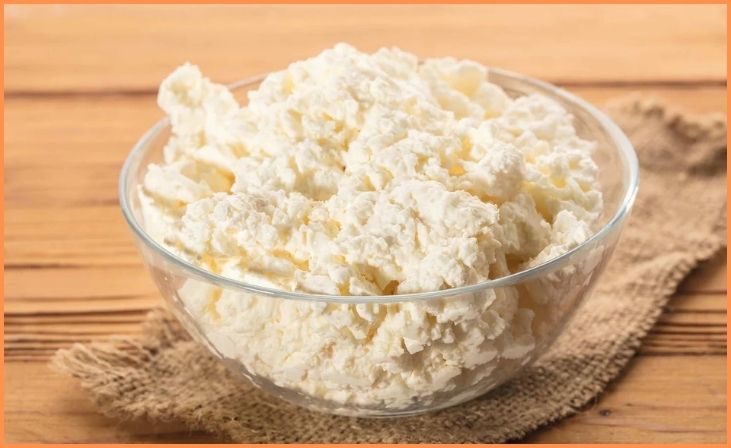
Cottage cheese is another great source of protein and calcium, making it beneficial for bone and teeth health. It also contains probiotics, which are good bacteria that help maintain a healthy gut and support muscle-building. Consuming cottage cheese regularly can help with muscle recovery, making it a popular choice for people who exercise. It has also been linked to weight management, as it helps you feel full and satisfied, reducing overeating. Cottage cheese is particularly helpful for people trying to lose weight or maintain a healthy weight, as it promotes lean muscle mass and can aid in regulating blood pressure. Adding it to meals can enhance overall nutritional value.
4. Chicken Breast
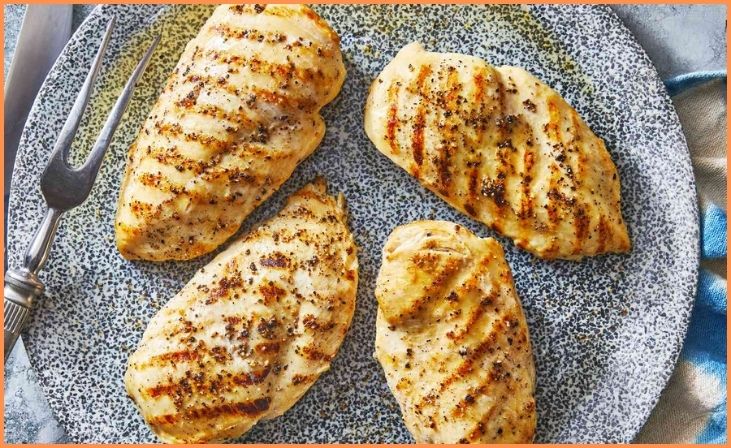
Chicken breast is a lean source of protein that provides many health benefits. It contains essential minerals like phosphorus and calcium, which support bone health. It also has selenium, which helps protect against conditions like arthritis. The nutrients tryptophan and vitamin B5 found in chicken can reduce stress and promote relaxation. Vitamin B6 in chicken plays a role in preventing heart disease by lowering levels of homocysteine, a compound linked to heart health. Additionally, chicken is rich in niacin, which helps lower bad cholesterol levels, reducing the risk of heart disease. As a versatile protein source, chicken breast can be cooked in many ways to fit into various healthy meals.
5. Sockeye Salmon
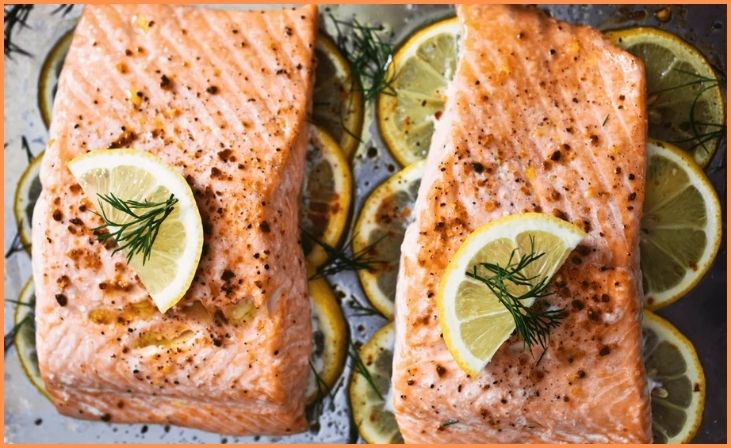
Sockeye salmon is a nutritious fish that provides low-fat protein and is loaded with beneficial nutrients like omega-3 fatty acids. These omega-3s are crucial for brain health, reducing inflammation, and supporting heart health. Omega-3s found in salmon help lower the risk of heart disease, cancer, and conditions like asthma, depression, and macular degeneration. Along with omega-3s, salmon is packed with potassium, vitamin B12, and selenium, which are important for maintaining healthy body functions. Eating salmon regularly can also improve joint health and mood, making it a powerful food to include in a balanced diet.
6. Lentils

Lentils are a type of legume that is high in fiber and protein, making them an excellent addition to a healthy diet. The fiber in lentils helps lower cholesterol levels and prevents blood sugar spikes, making them beneficial for people with diabetes or blood sugar concerns. They are also rich in essential minerals like iron, which helps boost energy levels and prevent anemia. Magnesium in lentils can reduce symptoms of premenstrual syndrome (PMS) in women and promote heart health. Lentils are low in fat and high in nutrients, providing a filling and nutritious option for people seeking to manage their weight or improve overall health.
7. Natural Peanut Butter
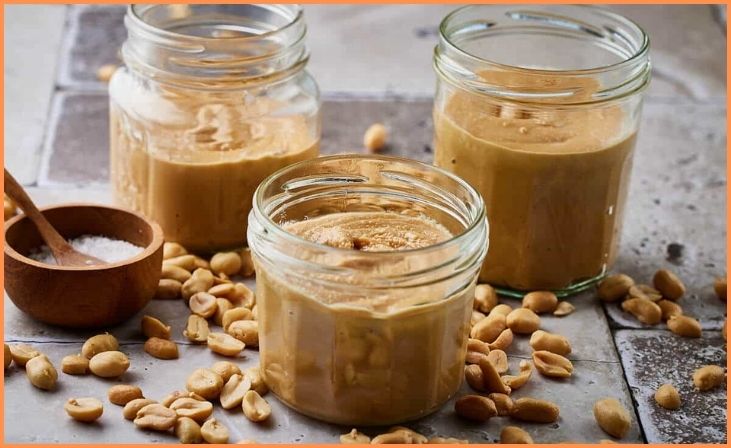
Natural peanut butter is a tasty and nutritious food that can help with weight management. While it is calorie-dense, it contains fiber and protein that keep you feeling full for longer periods. This helps prevent overeating and curb cravings, which can be beneficial for those on a diet. Peanut butter is also a good source of heart-healthy monounsaturated fats, which have been shown to reduce belly fat when consumed in place of saturated fats. In addition to healthy fats, peanut butter contains vitamin E, which is an antioxidant, along with potassium, magnesium, and vitamin B6. These nutrients support various bodily functions, from muscle function to heart health.
8. Almonds

Almonds are a nutrient-rich snack that provides a good balance of protein, fiber, and healthy fats. Despite being high in fat, the fats in almonds are mostly monounsaturated, which are good for heart health. These fats can help lower the risk of heart disease. Almonds are also rich in vitamin E, an antioxidant that helps protect the skin from UV damage and fights against aging. They also contain magnesium, which is important for maintaining healthy muscles, nerve function, and regulating blood pressure. Manganese in almonds supports strong bones and helps control blood sugar levels. With their combination of nutrients, almonds make a satisfying and healthy snack.
For More- 8 Quick and Satisfying Chicken Dinner Recipes for Two
Conclusion
Protein is an essential nutrient that supports the body’s growth, repair, and overall function. Including a variety of protein-rich foods in your diet ensures you get not only protein but also a wide range of other vitamins and minerals that contribute to your health. Foods like eggs, milk, cottage cheese, chicken breast, sockeye salmon, lentils, peanut butter, and almonds provide numerous health benefits, from promoting muscle growth and bone strength to improving heart health and reducing stress. By incorporating these nutrient-packed foods into your meals, you can support a balanced, healthy lifestyle that nourishes your body and enhances your well-being.
FAQs
Yes, many plant-based foods such as lentils, beans, tofu, quinoa, and nuts are excellent sources of protein. You can easily meet your protein needs with a well-balanced plant-based diet.
Inadequate protein intake can lead to muscle weakness, slow recovery, weakened immune function, and overall fatigue. It may also affect the health of your hair, skin, and nails, as protein is vital for their growth and repair.
For most people, consuming eggs in moderation is not harmful to cholesterol levels. While eggs do contain cholesterol, they are also rich in nutrients that benefit overall health. It’s best to focus on a balanced diet that includes a variety of protein sources.

